Hanshan Temple (寒山寺), literally meaning Cold Mountain Temple, is located in Gusu District of Suzhou city. It was built in the reign of the Liang Dynasty of the Southern Dynastis from A.D 502-519, and was originally named "Miaoli Puming Temple". Hanshan Temple covers an area of about 13000 square meters, with a construction area of more than 3400 square meters.
In Zhenguan period (A.D. 627-649) of the Tang Dynasty, Hanshan and Xiqian, two famous monks at that time, founded Hanshan Temple. In more than 1300 years, Hanshan Temple was destroyed by fire five times (seven times in another version), and the last reconstruction was in Guangxu period (A.D. 1875-1908) of the Qing Dynasty. In history, Suzhou Hanshan Temple was one of the top ten famous temples in China. It now enjoys popularity among Chinese people to a large extent because of a poem written by Zhang Ji (a poet in the Tang Dynasty) which is taught in the primary school. The poem is also taught in the schools in Japan, so Hanshan Temple is also famous in Japan and many Japanese come here to pay respect to the Buddha.
Besides, Hanshan Temple is a renowned place praying for blessings. There is a giant bell in the temple. Every day, numerous believers come to the temple, ring the bell and pray for peace.
Hanshan Temple is usually not a routine attraction in a classic Suzhou tour, but it is a place worth visiting especially for those who are interested in culture. Below are some recommended Suzhou tour packages, you can also contact us to tailor-make a Hanshan Temple tour in Suzhou.
☛ 1 Day Suzhou City Highlights Tour
☛ 2 Days Best Suzhou & Tongli Water Village Tour
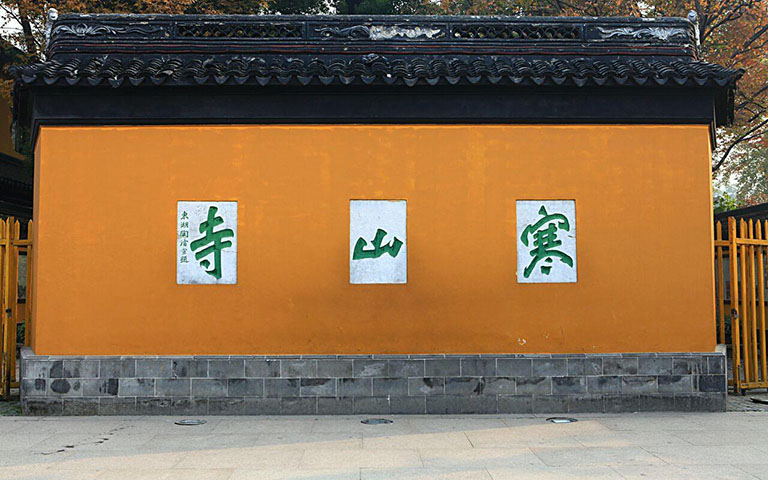 Screen Wall Written Hanshan Temple
Screen Wall Written Hanshan Temple
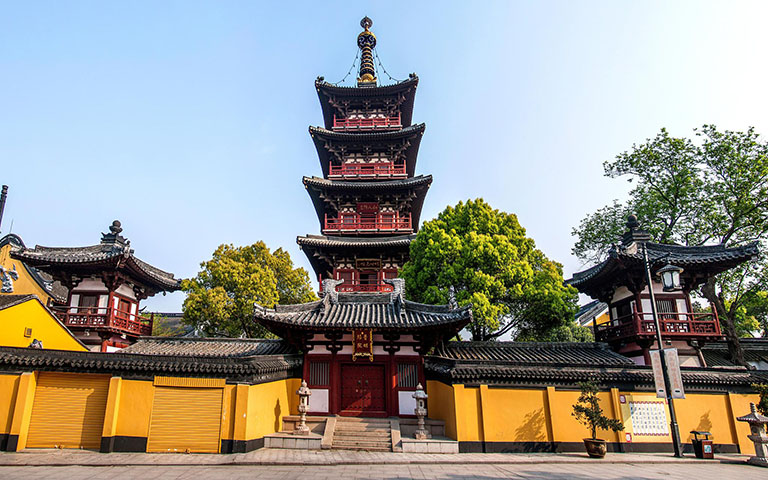 The Solemn Hanshan Temple
The Solemn Hanshan Temple
A Night Mooring By Maple Bridge 《枫桥叶泊》 written by Zhang Ji more than 1200 years ago is the poem that makes Hanshan Temple so famous. You can see stone stele there writing the poem. This 3.5 meters high and 1 meter wide stele written by Yu Yue, a famous scholar in the late Qing Dynasty, has become a classic in Hanshan Temple.
Chinese version:
月落乌啼霜满天,江枫渔火对愁眠。
姑苏城外寒山寺,夜半钟声到客船。
English translation:
Moon's down, crows cry and frost fills all the sky;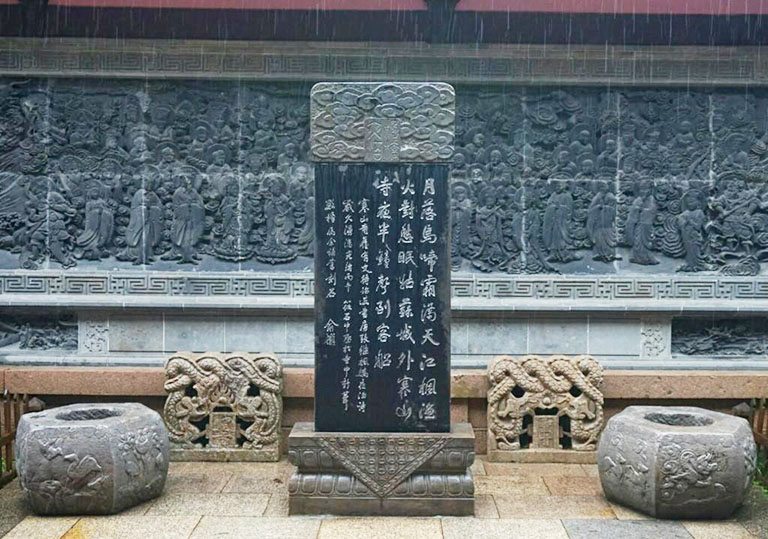 A Night Mooring By Maple Bridge
A Night Mooring By Maple Bridge
There are many historic sites in the temple, such as the stone inscriptions of the poem written by Zhang Ji, the stone statues of Hanshan and Shide, and the fragments of inscriptions written by Wen Zhengming and Tang Yin (two of the four great talents in the Ming Dynasty in Jiangnan region). You can also have a chance to see or strike the bell in Bell Tower.
Hanshan Temple is mainly composed of The Great Buddha’s Hall, Buddhist Sutra Mansion and other buildings. There is no strict central axis in Hanshan Temple and it does not pursue a balanced layout like most temples.
The Great Buddha’s Hall (大雄宝殿) is also the main hall of Hanshan Temple. It is five rooms wide and four rooms deep, with a height of 12.5 meters. In the center of the terrace is a copper tripod with a hearth. On the front of the tripod casts characters “一本正经 (solemn)" and on the back is "百炼成钢 (be toughened and hardened into steel)" about a religious legend. Once there was a dispute between Chinese monks and Taoists to see whose classics could stand the fire. The Buddhists put the Vajra Sutra into the fire of the bronze tripod, and the sutra was intact. Therefore, the eight characters are engraved on the tripod to commemorate the story.
In the main hall, the tall Xumizuo (Sumeru seat) is carved with white marble. On the seat is a golden Buddha statue of Sakyamuni. On both sides of the wall are eighteen fine iron gilded arhat statues cast in the Ming Dynasty (A.D 1368-1644). They were moved here from Mount Wutai, the holy land of Buddhism.
Different from other temples, behind the Buddha statues is not Avalokitesvara, but are stone carvings of Hanshan and Shide (Hanshan is one of the founders of Hanshan Temple and Shide is his best friend). It was created by Luo Pin in the Qing Dynasty with bold brushwork and smooth lines. In the carving, Hanshan's right hand points to the ground and he talks lively and jovially while Shide listens happily.
Buddhist Sutra Mansion (藏经楼) is the place where the original Sutras were collected. It is 9.8 meters wide and 9.2 meters deep. In Hanshi Hall (寒拾殿), there are sculptures of Tang Sanzang, Sun Wukong (Monkey King), Zhu Wuneng and Sha Wujing in Journey to the West, depicting the scene they return from the West after getting the Buddhist scriptures. On the wall of the first floor are embedded 27 stones of the scripture of Vajra Prajna Paramita Sutra written by Zhang Jizhi, a calligrapher in the Southern Song Dynasty (A.D. 1127-1279).
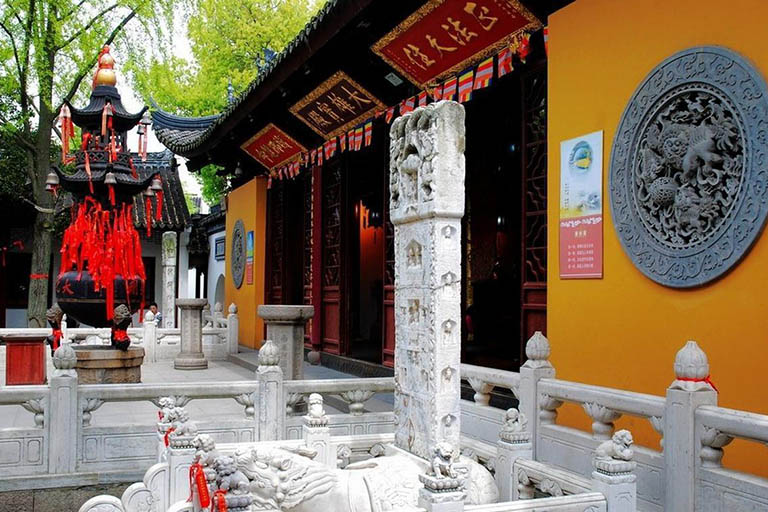 The Great Buddha’s Hall
The Great Buddha’s Hall
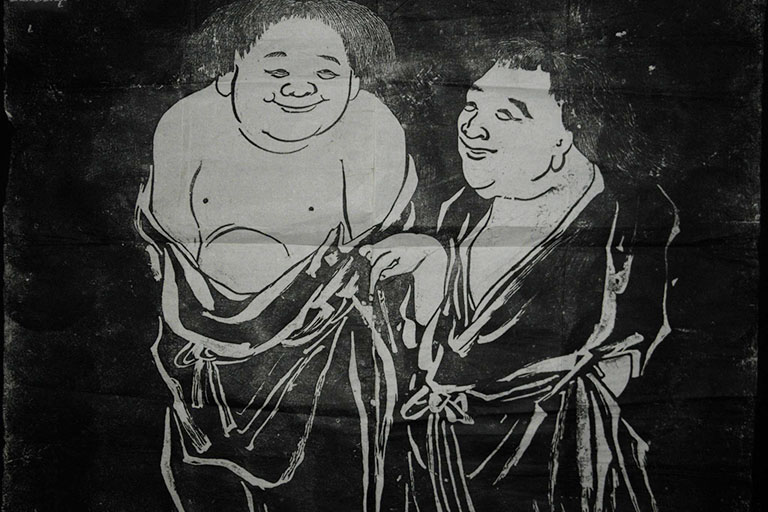 Hanshan and Shide
Hanshan and Shide
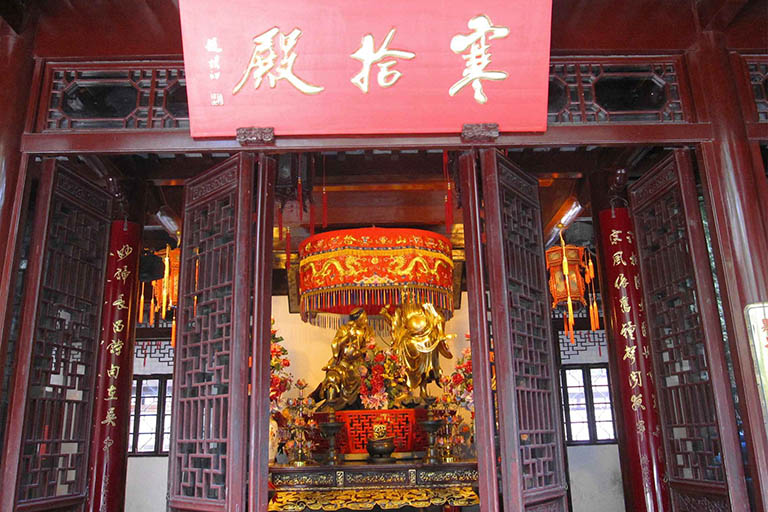 Hanshi Hall in Buddhist Sutra Mansion
Hanshi Hall in Buddhist Sutra Mansion
In the Stele Corridor (碑廊) of Hanshan Temple, as mentioned above, there is a stele engraved with the well-known poem "A Night Mooring By Maple Bridge 枫桥夜泊". Actually, since the creation of the poem, there have been many scholars carving stone steles for Hanshan Temple. The first stele was written by Wang Gui in the Song Dynasty (A.D. 960-1279) but it was destroyed in wars. In the Ming Dynasty (A.D. 1368-1644), the painter Wen Zhengming rewrote the poem and engraved it on the stone, which was the second stele. But Hanshan Temple went through several fires and only some characters of the stele such as 霜, 啼, 姑, 苏 survived. Then it was the third one written by Yu Yue in 1906. The fourth one was written in 1947 by a calligrapher also named Zhang Ji. He passed away the second day he finished the work and the stele still stands in Hanshan Temple.
Apart from the steles about the poem, many famous figures in history also left their works in Hanshan Temple. There are fragments of inscriptions written by Tang Yin (famous painter, calligrapher and poet in the Ming Dynasty) as well as the poem steles of Yue Fei (general and national hero in the Song Dynasty) and Kang Youwei (important philosopher and educator in the late Qing Dynasty).
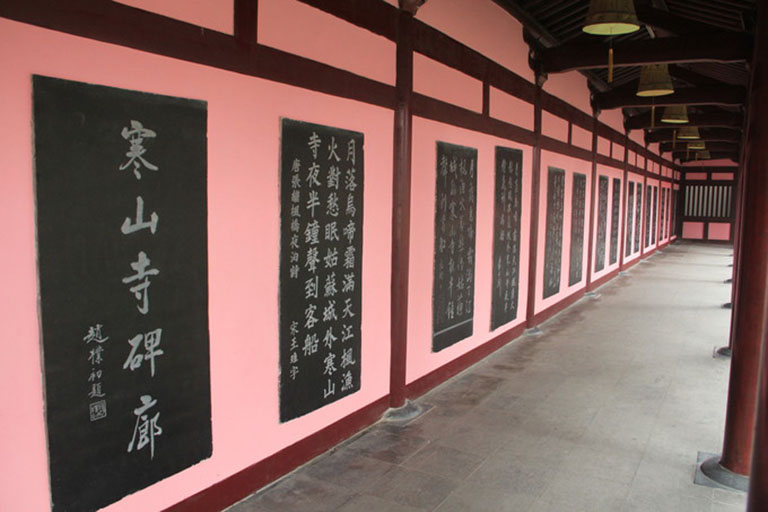 Stele Corridor in Hanshan Temple
Stele Corridor in Hanshan Temple
Many tourists come to Hanshan Temple for the giant bell because people believe that it can bring good fortune. On ordinary days, tourists can pay to strike the bell (about CNY 10 for 3 strikes) by themselves. But the biggest event is on New Year’s Eve which has been held over 40 years. On that night, Chinese and foreign tourists gather in Hanshan Temple to listen to the monks strike the bell 108 times from the Bell Tower. Why it should be 108 times? There are two explanations. One is that there are 12 months, 24 solar terms and 72 periods (five days as a period) every year. 108 is the sum total of these numbers. Ringing 108 times means the end of the year. It means getting rid of the old and ushering in the new. The other is that in Buddhist legend, human beings have 108 kinds of troubles in a year. If the bell rings 108 times, all the troubles can be eliminated.
Now the ancient bell in Hanshan Temple is not the one mentioned in Zhang Ji's poem. It is made in 1906 by Chen Kuilong, governor of Jiangsu Province. The giant bell weighs two tons and is taller than a person, and it still gives out loud and deep sound.
In front of the Bell Tower stands the magnificent Huaxia Poem Monument (华夏诗碑), which is built in 2007 with a main body height of 16.9 m. The front of the monument is engraved with the famous poem A Night Mooring By Maple Bridge and the back are 289 Chinese characters from Prajna Paramita Heart Sutra written by Emperor Qianlong. Nine dragons are carved carefully on the periphery. It is the largest and highest poem monument in China, also known as the "No. 1 Poem Monument in China".
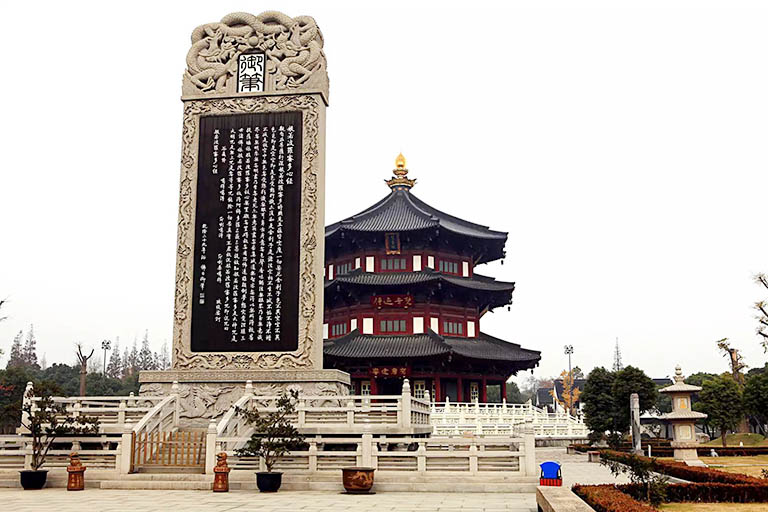 Bell Tower & Huaxia Poem Monument
Bell Tower & Huaxia Poem Monument
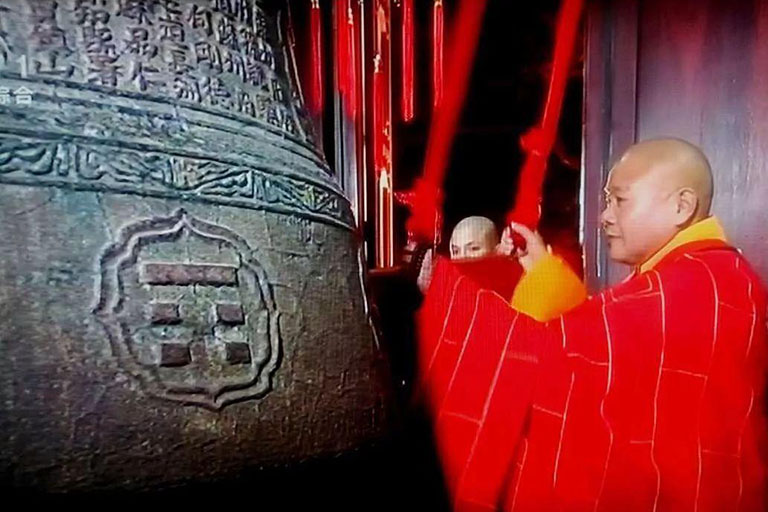 Striking the Bell on New Year's Eve
Striking the Bell on New Year's Eve
Hanshan Temple is located in No. 24 Hanshansi Nong, Gusu District, Suzhou City 苏州市姑苏区寒山寺弄24号, about 9 km (30 minutes’ drive, 1 hour by bus) to Administrator’s Garden in Suzhou downtown, 6 km (15 minutes’ drive, 45 minutes by bus) to Suzhou Railway Station. So generally speaking, it is convenient to get to Hanshan Temple no matter you go by bus or taxi.
Note: Suzhou can be reached easily by high speed train from Shanghai (about 0.5h), Hangzhou (1.5~2.5h), Nanjing (1~1.5h), Wuxi (20min), Changzhou (25~50min), Wuhan (4~4.5h), Huangshan (about 3.5h), Yangzhou (about 1.5h), etc.
In order to save your time and avoid the trouble of several transfers, traveling with a local travel agency like China Discovery is top recommended. Booking a Suzhou tour package from China Discovery, you can enjoy the best transfer service. Our local travel guide will pick you up at the railway station or your hotel. Then you will be escorted to the attractions in a spacious, clean and air-conditioned car which is equipped with a skilled and reliable driver.
More than transfer service, you will be guaranteed with a flexible customizable itinerary based on your preference. Our travel consultant will keep in touch with you all the time and take care of every detail. There is no need to worry about the transfer, accommodation, meal, tickets, or anything else. Your knowledgeable travel guide will also give you enough information of every attraction to make your trip more memorable. Feel free to contact us to start your Suzhou Hanshan Temple tour now!
 China Discovery Private Transfer
China Discovery Private Transfer
Location: No. 338 Liuyuan Road, Suzhou City, Jiangsu Province, about 2.5 km, 10 minutes’ drive from Hanshan Temple
Lingering Garden is one of the Top Four Classical Gardens in China, combined with Summer Palace in Beijing, Chengde Mountain Resort in Hebei and Humble Administrator's Garden also in Suzhou. It is also one important component of Suzhou Gardens which was a national AAAAA scenic spot. Lingering Garden attracts large amounts of tourists with its beautiful architectures and various natural landscapes. As an ancient private garden with an area of 23,300 square meters, Lingering Garden symbolizes Qing Dynasty style and consummate art of buildings. In 1997, Lingering Garden, combined with 8 other Suzhou gardens are listed in the World Cultural Heritage sites by UNESCO.
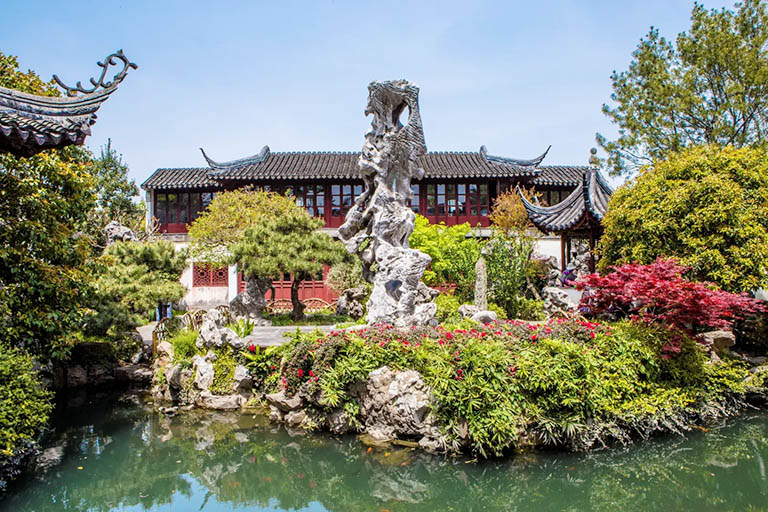 Lingering Garden
Lingering Garden
1. Vegetarian Food: There is a vegetarian restaurant in Hanshan Temple selling vegetarian noodles, steamed vegetable stuffed bun (Baozi), etc.
2. Luggage storage: Hanshan Temple does not provide luggage storage service. Visitors usually leave their luggage in hotel or at places like Suzhou Railway Station where luggage storage service is available.
3. Restroom: There is one restroom in the eastern gate with a notable sign.
How to Get to Suzhou: You can easily get to Suzhou by high speed train from Shanghai (about 0.5 hour), Hangzhou (about 1.5 hours), Nanjing (about 1 hour), Beijing (about 4.5 hours), etc.
Best Time to Visit Suzhou: April to October, especially April and May in spring and September and October in autumn
Generally, a classic Suzhou tour takes about 1~2 days. Visiting Suzhou, you can't miss elegant Suzhou gardens, like Humble Administrator's Garden, Lingering Garden, Master of the Nets Garden, etc. You can choose one or two of them for a great garden delight. Other must-be-visited sights in Suzhou City include Suzhou No.1 Silk Factory from which you can watch the process of silk making from silkworms to elegant products, Tiger Hill which is known as the first sight in Suzhou, Suzhou Museum which is designed by I. M. Pei and Suzhou's old canalside roads (like Pingjaing Road and Shantang Street), etc. If you like Jiangnan watertowns, you can visit Tongli, Zhouzhuang or Luzhi to have a wonderful time.
☛ 1 Day Suzhou City Highlights Tour
☛ 1 Day Suzhou Zhouzhuang Tour
☛ 2 Days Best Suzhou & Tongli Water Village Tour
If you want to explore more about Jiangsu Province, you can travel to Nanjing - the old capital city of 6 ancient dynasties, Wuxi - a beautiful lakeshore city, Yangzhou - old culture center of southern China, etc. Check more about Jiangsu Tours>
☛ 5 Days Jiangsu Tour (Suzhou, Wuxi & Nanjing)
In fact, most people travel Suzhou with Shanghai - the best gateway city to Suzhou, and Hangzhou which has long been on a par with Suzhou since ancient times. Generally, it needs 2~3 days enjoying Shanghai's highlights and another 2~3 days appreciating the poetic beauty. Check more about Shanghai Suzhou Hangzhou Tours>
☛ 3 Days Hangzhou & Suzhou Beauty Tour by High Speed Train
☛ 4 Days Shanghai Suzhou Excellent Tour
☛ 5 Days Shanghai Hangzhou Suzhou Highlights Tour
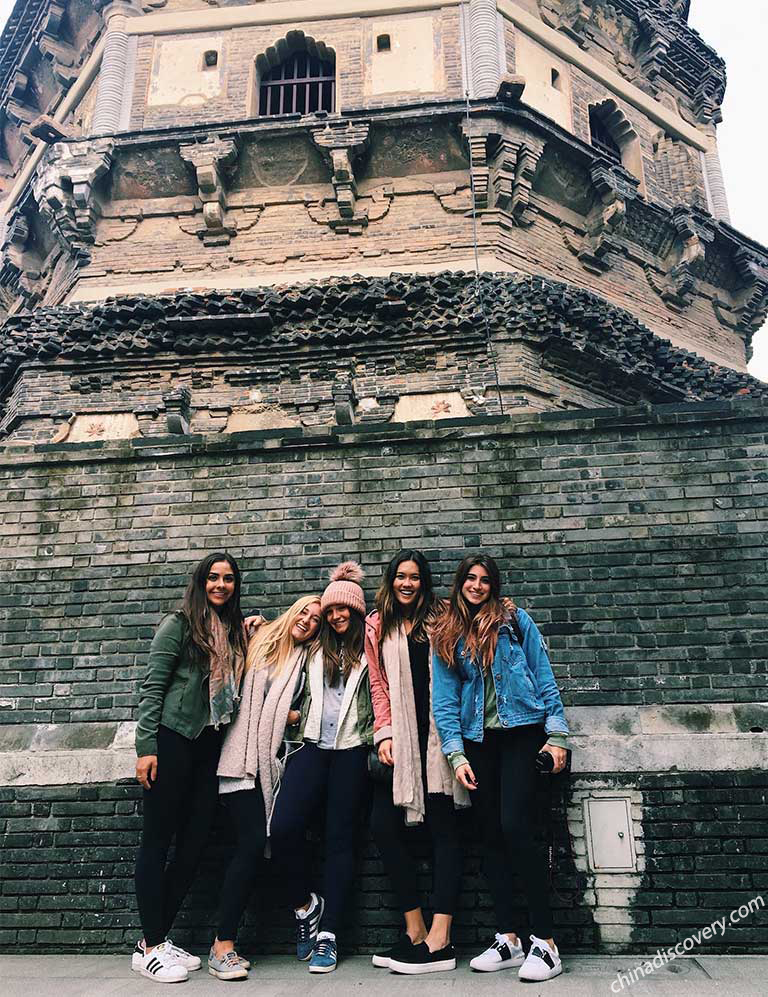 Our Customers visited Tiger Hill, Suzhou
Our Customers visited Tiger Hill, Suzhou
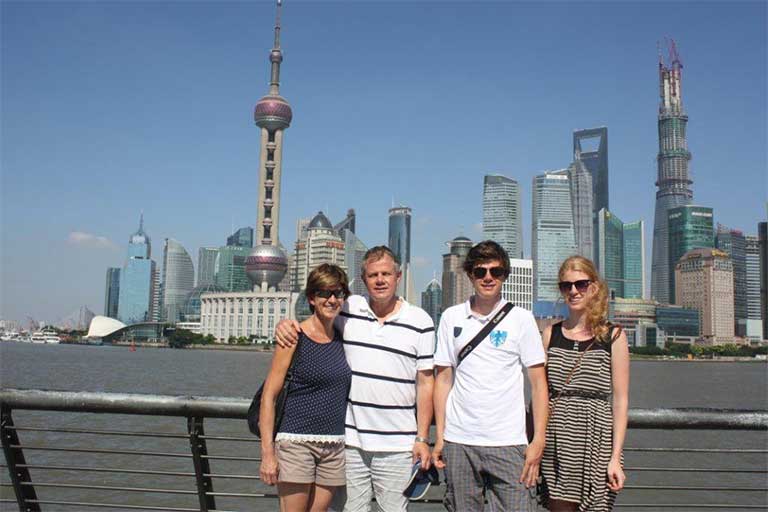 Our Customers visited the Bund, Shanghai
Our Customers visited the Bund, Shanghai
Since 2012, we have helped numerous customers visit Suzhou and surroundings. With our fully-inclusive private tour packages, all of our customers enjoyed their trips to the exquisite gardens, peaceful watertowns, informative silk factory or museum, old Suzhou streets, etc. Some of them kindly shared their precious photos and stories about their Suzhou journey, just get inspired now.
"We were lucky for being able to watch Chinese dancers at the Lingering Garden at the time of visit…" - shared by Nguyen (Check her The Pursuit of Natural Beauty with the Beloved one - 14 Days Beautiful China Exploring Tour>)
"Suzhou was the real treat at the end of the trip! Everything about Suzhou was perfect…" - shared by Elizabeth from Britain (Check her Long-lasting Memory brought by First Trip to China - 16 Days well-Organized and Wonderful First Visit to China>
Besides the wonderful travel stories, many customers who visited Suzhou with China Discovery also send us their first-hand feedbacks about their trip, feel free to read the Suzhou Reviews and learn what they say about their experience. If you want to start your Suzhou tour now, don't hesitate to contact us.
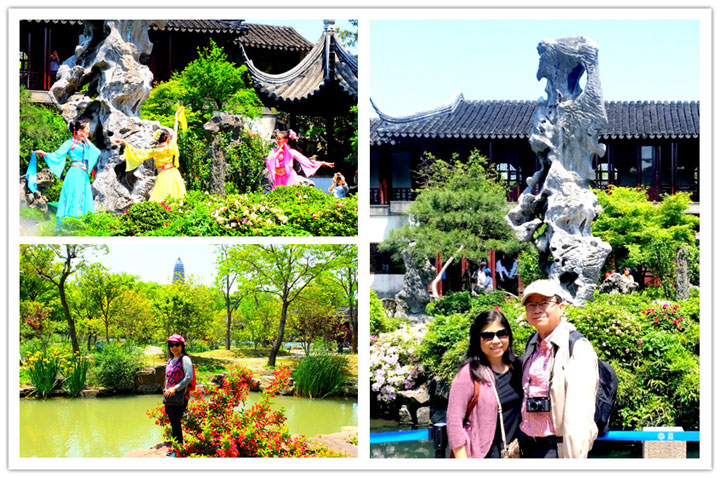 Our Customers Mrs. Nguyen and her husband from Canada visited Suzhou, customized by Wonder Wang
Our Customers Mrs. Nguyen and her husband from Canada visited Suzhou, customized by Wonder Wang
Top 3 Suzhou tours chosen by most customers to explore Suzhou in the best way. Check the detailed itinerary, or tailor your own trip now with us.
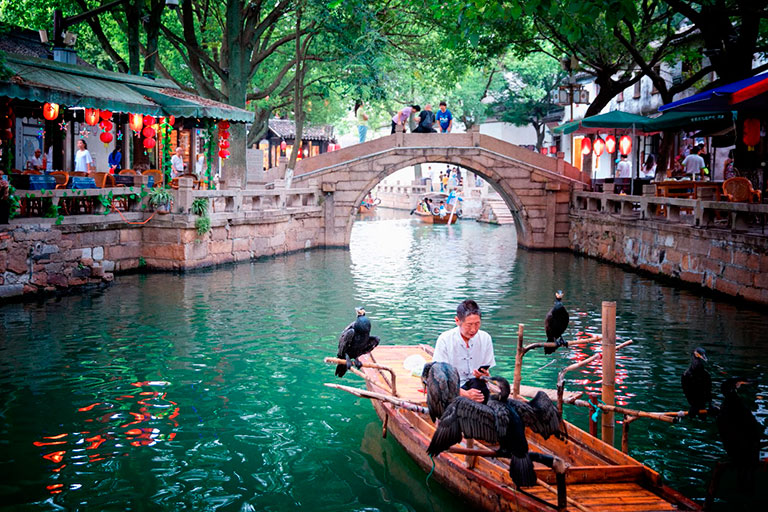
Suzhou / Tongli Water Town
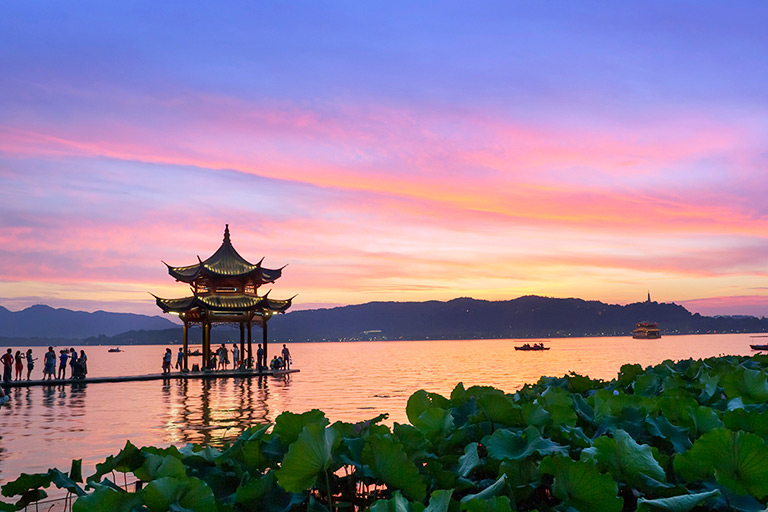
Shanghai / Hangzhou / Suzhou / Shanghai
Start planning your tailor-made holiday to China by contacting one of our specialists. Once inquired, you’ll get a response within 0.5~23.5 hours.
Customize a Trip